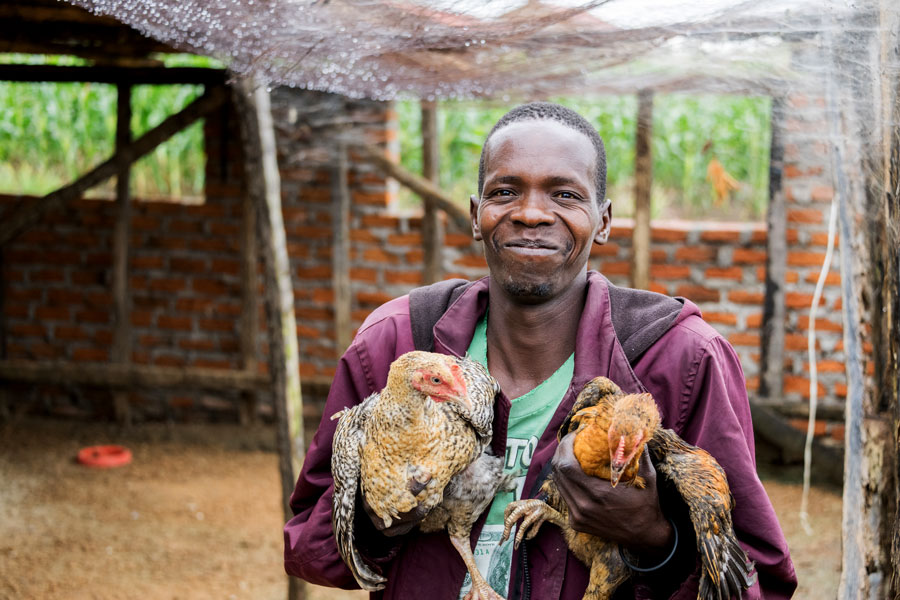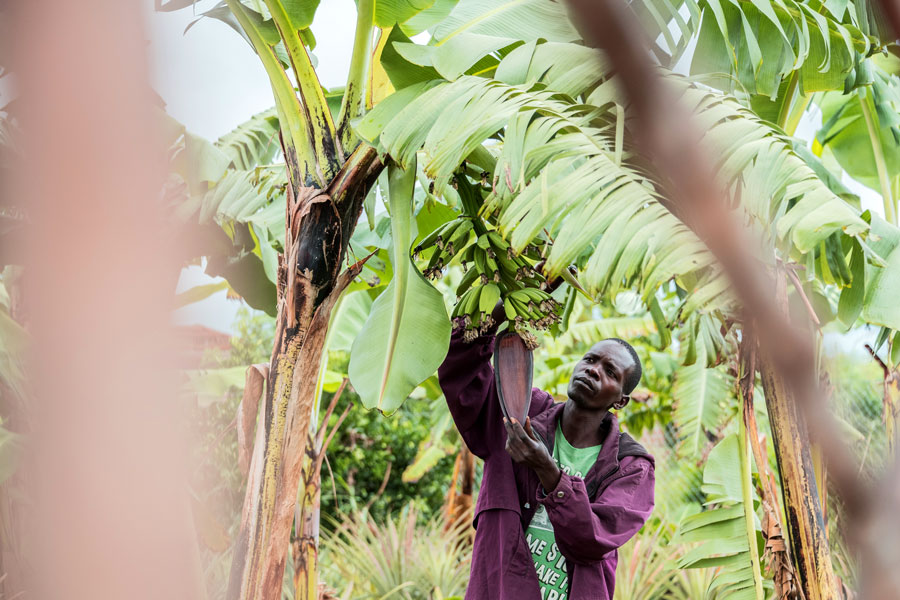Pastor Apollo Achol knows firsthand the damage that decades of conflict brought to the people of northern Uganda: his own family was attacked by the rebels of the LRA, with devastating consequences. Ten years later, as the war ended and those who had fled the community trickled back, Pastor Apollo and his church set about the task of restoring the people’s hearts and homes.
For more than 20 years, Joseph Kony and his Lord’s Resistance Army (LRA) terrorised millions in Uganda’s northern regions. He and his guerrillas—many of them kidnapped children coerced into terrible actions—murdered, raped and looted their way through swathes of the nation, attacking without warning or mercy. Entire communities fled before them; devastated lives lay in their wake.
One of the survivors was a young man named Apollo Achol.
“When the rebels attacked our home in 1996, we lost all of our 300 animals. They killed my brother as he tried to escape on a bicycle. Although the rest of us survived, my father never recovered from the ordeal. He suffered a mental health condition and he eventually died in 2001,” he says.
A ceasefire in 2006 allowed the internally displaced persons—up to 2 million people by some counts—to return from refugee camps to their abandoned villages that were now scarred by burnt out homes, famine, disease, and mass graves.
By that time, Apollo was a pastor at the Victory Outreach Church in Lira. He devoted himself to the returning locals, counselling former child soldiers and traumatised people from all walks of life. He saw clearly that peace, when it came, if it came, would only be possible because of the love of Jesus.
The war was over, but the church’s work had only just begun.
Farming for Life
Pastor Apollo and a handful of other church leaders from different denominations took stock of their fractured community. The fault lines were clear: land redistribution caused conflicts as neighbours clashed over what was once communal pasture; orphaned children roamed the streets, begging; there was no work to be found—and that meant no income, and no food; and diseases like HIV/AIDS were rampant, the legacy of widespread rape and a lack of medical services.
Beneath it all, an unspoken fear: what if the rebels returned?
The church decided to address the first needs first.
“We started by providing [people with] a startup kit consisting of seedlings, farm implements such as a wheelbarrow and [farming tools],” says Pastor Apollo.
They mediated land disputes and got people back to work to secure their own food supply. But they also took the opportunity to address spiritual and emotional wounds.
“We farm God’s way,” says Lydiah, a facilitator of the church program. “We teach biblical principles which guide [people in their] daily life … we teach good agricultural practices so people plant and harvest at the right time, and we apply technology to increase yields. When we compared conventional farming to this method, the contrast is clear.”
Martin, a small-scale farmer and shop owner, is one of hundreds of people who have seen the results. “I used to harvest three bags of maize on one acre, but now I get nine bags!”
A Focus on Children
When Victory Outreach Church partnered with Compassion in 2007, they were able to serve more children and focus on those who were orphaned, traumatised, stigmatised.
“Working with Compassion has strengthened our work by increasing our scope of operation. We are able to reach the most vulnerable,” says Pastor Apollo.
“Compassion has helped us to organise ourselves,” says Angelina, the centre director at UG0921. “The trainings have built the church’s capacity to reach many families through skills training for young people, income generating activities, psychosocial support and disease management.”
As the church addressed the needs of the people around them, change slowly took root. They installed safe water sources, made sure children were fed and attending school, and continued to pray and share how a God of love and restoration could heal their suffering.
“We are respected in this community to the extent that the local government is interested in our work,” says Pastor Washington, a church leader who, like Pastor Apollo, suffered great loss at the hands of the LRA. “[The government even invested in] training and upgrading of our programs because they see the work we are doing.”
More than a decade after the ceasefire, progress is promising. But the Victory Outreach Church knows that God is calling them to continue His work in their community. And with great empathy, raw determination and a commitment to prayerfully seeking God’s direction, they have all the resources they need to bring lasting change.
Words by Silas Irungu and Richard Miller; photos by Silas Irungu



